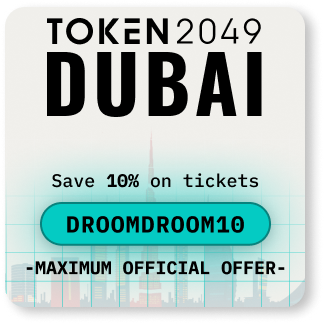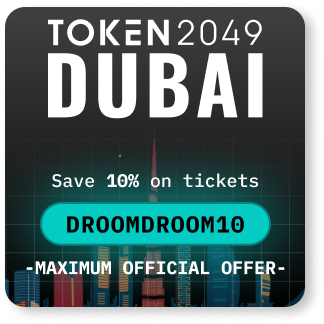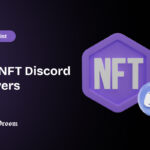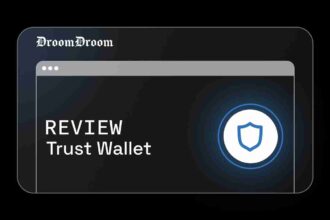The thrilling realm of decentralized governance and blockchain At the heart of this innovative landscape, you’ll find a key player: the governance token. However, what’s a governance token, and why do decentralized finance and blockchain systems have this particular meaning for it?
- How Do Governance Tokens Work?
- Token Distribution
- Voting Power
- Proposal Submission
- Voting on Proposals
- Decision Implementation
- Token Rewards
- Examples of Governance Tokens
- Governance Tokens Features
- Voting Power
- Proposal Mechanism
- Voting Periods
- Quorum and Consensus Rules
- Smart Contracts
- Token Staking and Locking
- Incentive Mechanisms
- Token Burn or Minting
- Upgradeability
- Are Governance Tokens Valuable?
- Decision-Making Power
- Community Engagement
- Incentives and Rewards
- Governance as a Service
- Economic Value and Tokenomics
- Protocol Upgrades and Adaptability
- What is the Difference Between Governance and Utility Tokens?
- Advantages of Governance Tokens
- Community Empowerment
- Decentralized Decision-Making
- Flexibility and Adaptability
- Incentives for Participation
- Reduced Centralization Risks
- Alignment of Interests
- Transparent and Auditable Processes
- Protocol Security
- Disadvantages of Governance Tokens
- Voter Apathy
- Sybil Attacks
- Lack of Expertise
- Slow Decision-Making
- Governance Capture
- Complexity and Inefficiency
- Security Risks
- Unintended Consequences
- Legal and Regulatory Challenges
- The Future of Governance Tokens
- Hybrid Models
- Interoperability
- Improved Voter Participation Mechanisms
- Enhanced Security Measures
- Evolution of Incentive Structures
- Focus on User Experience
- Regulatory Considerations
- Integration with Decentralized Identity
- Community Collaboration
- Experimentation with New Governance Models
- Conclusion
In simple terms, a governance token should be regarded as the key that unlocks the kingdom of decentralization. These tokens give their holders the right to vote, thus influencing decisions that are made by a DAO or any other governance process in the blockchain and DeFi realms, respectively.
Thus, a governance token is not only a kind of digital money but also an access ticket for the central office of the decentralized organization, which allows the owner to speak the word about the development prospects of an ecosteam. A marvelous integration between technology and government where users get to contribute towards improving the platforms that have gained their trust.
How Do Governance Tokens Work?
Blockchain technology forms the backbone of decentralized decision-making through the mechanism of governance tokens. Here’s a simplified breakdown of how they typically work:
Token Distribution
At first, government tokens are issued via ICO schemes, token drops, or liquidity mining. These units are earned by participants, making them shareholders in this decentralized system.
Voting Power
Your voting rights are closely associated with how many governance tokens you have on hand. Your voting power is proportional to the number of tokens you hold. This is commonly known as “staking” tokens.
Proposal Submission
Anybody in the community may submit a proposition for amendment or enhancement of the decentralized protocol. These may include hardware and software updates, alterations to token supply dynamics, and amendments to governance policies, respectively.
Voting on Proposals
Governance token holders receive the right to vote on proposed changes. The voting process often takes place via smart contracts on the blockchain, making it transparent and secure.
Decision Implementation
After voting, decisions are made based on the results of the voters. As an illustration, when deciding on a given project, the votes will decide what to do if at least two people give their opinion on the project. The votes will decide what to do if at least two people agree on a project.
Token Rewards
Some governance models reward active engagement with token benefits. This may take the form of additional governance tokens or rewards linked to the associated environment.
Through this process, a democratic system, whereby everyone participates in determining where the project goes next, is formed. This is a living process wherein decision-makers take input from holders to manage blockchain protocols, thus developing token holders’ feelings of possessiveness towards their tokens.
Examples of Governance Tokens
Some noteworthy instances of governance tokens have taken up leadership positions in the case of emerging distributed systems. Here are a few:
Compound (COMP)
This is a governance token called COMP for Compound Protocol a decentralized lending platform. The people holding COMPs have the authority to suggest amendments, affect interstate rates, and add the assets they support.
Uniswap (UNI)
DEX is synonymous with UNI. UNI token holders can propose and vote on modifications relating to fee structure or the development of additional products.
Maker (MKR)
MKR is used to govern the MakerDAO platform, which uses the stablecoin. Holders of MKR have a say in voting for proposals about the supported collateral types, stability fees to be changed, and other important things.
Aave (AAVE)
AAVE is AAVE’s lending platform governance token. Voting on proposals related to the development of the protocol and its parameters is possible for AAVE investors.
Yearn.finance (YFI)
YFI is the governance token of yearn.finance, a decentralized finance aggregator. YFI token holders have voting power that enables them to propose and make decisions about the platform’s strategies, partners, and other governance factors.
Balancer (BAL)
A platform called the Balancer protocol creates an automated portfolio manager and a BAL-governance token that acts as a liquidity provider. BAL holders can suggest any modifications to a platform’s parameters or features, which they have the right to vote for.
Governance tokens in action: these range from decentralized lending and exchanges to stablecoin platforms and yield aggregators. However, each token enables those involved in it to determine themselves towards the development as well as management of their appropriate ecosystems.
Governance Tokens Features
However, governance token structures vary on different decentralized platforms, although certain features remain common among them. Here are some key components of governance token structures:
Voting Power
A key characteristic of governance tokens is that they give one voting rights. Concerning this, the more tokens you hold, the stronger your voice will be in influencing decisions to be made. The votes may be distributed through quadratic voting or some other governance model.
Proposal Mechanism
Governance systems usually entail that token holders can create proposals to be introduced in the protocol. These proposals cover numerous aspects, such as making technical improvements, altering tokenomics, and changing governance rules.
Voting Periods
Governance is done in defined voting sessions or terms. There is usually a certain period during which token holders get an opportunity to vote for or against any proposed alterations. This decision, as stated earlier, depends on the result of the voting, which ends when the votes are cast.
Quorum and Consensus Rules
A governance structure may demand that a decision be accompanied by a minimum quorum, or minimum participation, for validation. Also, few systems could include a consensus rule of large voting for substantial changes in the protocols.
Smart Contracts
Usually, smart contracts in the blockchain are involved in automating the execution of governance decisions. The results of these votes are enforced through these contracts without centralized authority.
Token Staking and Locking
Some governance models have staking mechanisms such that one locks his or her tokens for a determined time frame to attract more voting strength. This fosters long-term involvement and encourages commitment.
Incentive Mechanisms
For this to work, many governance token structures employ incentive mechanisms that promote participation. It may include awarding them with more governance tokens or providing other incentives for playing an active role during the voting.
Token Burn or Minting
Some governance models use the burning of tokens or minting of new ones in their decision-making processes. For instance, some of the governance tokens can be incinerated to reduce the total amount if a proposal is approved.
Upgradeability
Some governance models permit the upgrading of the protocol. Therefore, token holders will have an opportunity to vote for any proposed protocol upgrade, even those involving the core code of this protocol.
Together, these factors form an organic and distributed type of administration, making it possible for users with tokens to interact in the development of the platform. They are structured in such a way that considerations of inclusion, equity, and flexibility to changing requirements are addressed.
Are Governance Tokens Valuable?
Governance tokens hold significant value within decentralized ecosystems for several reasons:
Decision-Making Power
Holders can use governance tokens to take part in decisions within the platform. Among these roles is voting on proposed changes to the platform regarding policies, rules, and future directions. Governance tokens hold value for people with a vested interest in the outcome and success of the project.
Community Engagement
Governance tokens, therefore, enhance community participation most of the time. It creates an air of ownership by allowing users to partake in governance and stimulating full participation. The involved communities may give ideas, raise concerns regarding their environment, and participate in improving their ecosystems.
Incentives and Rewards
Many models of governance provide rewards and compensation for token holders who engage in governance. These may entail extra governance tokens, protocol revenues, and various incentives. Such incentives improve the governance token value proposition by holding them and/or taking an active role in governance.
Governance as a Service
However, some projects go further than just using governance tokens to make decisions within their ecosystems. Hence, governance tokens form a “governance as a service” means by which holders would be able to take part in many decisions on different platforms and processes at once.
Economic Value and Tokenomics
Mostly, the economic value will be dependent on the tokenomics of a particular project. For instance, certain management coins may influence the balance of supply and demand in the greater token economy. The economic value of governance tokens is determined by scarcity, utility, and the possibility of future demand.
Protocol Upgrades and Adaptability
The adaptability of decentralized protocols is dependent on governance tokens. The holder is allowed to vote for the protocol updates to make sure that the platform will always remain relevant, dynamic, and competent in an ever-changing environment. In addition, the flexibility of the governance has a bearing on the value-added provided by these tokens towards guaranteeing the longevity of the project.
However, it is essential to mention that the price of governance tokens is determined by different factors, such as the performance of the underlying platform, the efficiency of the governance model, and finally how well received and taken up by the crypto community. The future of decentralized finance and blockchain ecosystems will still depend on governance tokens as the systems develop in the future.
What is the Difference Between Governance and Utility Tokens?
The primary difference between governance tokens and utility tokens lies in their functions and purposes within a blockchain ecosystem:
Governance Tokens
Governance tokens allow their holders to participate in the governance of the platform within a decentralized network. As holders, participants can vote on various proposals that may impact the development of the protocol’s rules or governance framework, as well as other pertinent details. Governance tokens are used as instruments of decentralized governance, giving the community a chance to be heard in defining the destiny of the platform. They are commonly employed in decision support rather than transactions.
Utility Tokens
However, utility tokens allow one to use some particular commodity or service offered by the platform. These can be employed in transactions, gaining access to features, or even acquiring the services and products offered in the ecosystem. Utility tokens exist to function on a platform. These are different types of cryptocurrency that refer only to their particular environment and usually have a price associated with goods or services in that space.
Overall, it is possible to note that governance tokens emphasize decentralized decision-making as well as community involvement, while utility tokens play a more pragmatic role with an individual’s specific platform. Nevertheless, it should be emphasized that some tokens may combine utilitarian and governance features, and in some cases, those lines become very blurred, especially as projects test different types of hybrid models. To operate efficiently within a decentralized environment, it is essential to comprehend how certain tokens function and their specific roles in an ecosystem.
Advantages of Governance Tokens
The governance tokens offer numerous benefits, which result in the growth and resilience of the decentralized projects. Here are some key advantages:
Community Empowerment
Holding governance tokens gives the community power as they have the right to participate in making decisions for the network and its policies. It helps cultivate a feeling of belonging and drives people to actively participate in building and enhancing the environment.
Decentralized Decision-Making
Governance tokens are vital in facilitating decentralized decision-making, which significantly minimizes central authority. This makes for collective decision-making by the entire community, hence promoting fairness, transparency, and inclusivity.
Flexibility and Adaptability
This makes decentralized protocols governed by so-called governance tokens very flexible and highly adaptable. The community members will have the ability to propose any change, upgrade, or modification through voting token holders.
Incentives for Participation
Incentives are common in many governance models that aim at promoting active civic participation. Participation for token holders can entail awarding them extra governance tokens, a fraction of protocol-generated revenue, and so on. This encourages users to be a part of the platform’s growth.
Reduced Centralization Risks
Governance tokens help prevent risks related to centralization by dispersing decision-making authority across different token holders. The decentralized approach ensures that one entity or small group does not monopolize leadership on the platform.
Alignment of Interests
Tokens are referred to as governance tokens, whose interests get aligned with the token holder’s interests for the successful operation of the network or platform. Holders have a significant stake in the decision-making that is beneficial in the long run for a healthy ecosystem that sustains itself.
Transparent and Auditable Processes
Governance decisions are recorded on the blockchain for transparency and auditable purposes. However, this guarantees that the decision-making procedure is open to scrutiny and not susceptible to being manipulated.
Protocol Security
Thus, governance tokens provide yet another way of improving the overall security of the entire protocol. This could involve voting for examples of any proposals or upgrades concerning security, which is crucial for developing a secure decentralized platform.
Together, these advantages form the basis for strong and flexible ecosystems in which governance tokens play an important role in the emerging world of blockchains and decentralized finances.
Disadvantages of Governance Tokens
However, the advantages of governance tokens should be weighed against possible disadvantages and challenges when using them for decentralized systems. Here are some notable drawbacks:
Voter Apathy
Another difficulty is that electors might be indifferent towards voting. This is because a portion of tokens’ holders may decide to refrain from active participation in the governing procedures, which will result in an accumulation of the decisions among some members of the community. Such can be a threat to the democratic pillars of decentralization.
Sybil Attacks
The problem with decentralized governance systems is that they can be attacked by a Sybil attack, in which one creates numerous fake identities to achieve dominance over the voting process. However, this may compromise the integrity of the decision-making system.
Lack of Expertise
Some people who hold the tokens might not be professionals to gauge some complicated financial or technical ideas. It might lead to decisions that are not optimal at all and do not coincide with the long-term interests of the platform.
Slow Decision-Making
It is difficult for people to make decisions in a decentralized system of government. This often results in coordination problems involving a wide number and diversity of tokens, which may require immediate solutions for changing market conditions or threats to digital data and system safety.
Governance Capture
This may lead to governance capture, which entails an entity with enough money or influence gaining control by acquiring many tokens. Such concentration of power has been noted to be contrary to some basic elements of decentralization, which were supposed to constitute the platform at its inception.
Complexity and Inefficiency
This may lead to some governance processes being too complicated or costly. Consensus and extended periods of making decisions could lead to a delay and slow down its responsiveness in light of the present situation.
Security Risks
Smart contracts for voting purposes may also come with security risks that depend on the governance model. These contracts can have vulnerabilities that could be taken advantage of, thereby subverting the legitimacy of such decisions.
Unintended Consequences
Unforeseen problems may arise as a result of decision-making under decentralized governance. Prediction of all possible results is difficult due to the complexity of blockchain ecosystems, while well-meant decisions can still lead to adverse consequences.
Legal and Regulatory Challenges
So far, regulation on governance tokens has been in a nascent stage. Projects implementing governance tokens face legal uncertainties as well as regulatory challenges that ultimately result in limitations, restraints, or compliance problems.
However, it is essential to note that these drawbacks are not specific to all governance token systems, with several initiatives taking steps to overcome such limitations. Improvements in governance, as well as continuous innovations, have been focused on enhancing the efficiency and equity of distributed decision-making patterns.
The Future of Governance Tokens
One can predict that the future of governance tokens will always be uncertain as new developments take place regarding the blockchains and DeFi area. Here are some potential trends and developments that could influence the future of governance tokens:
Hybrid Models
It might lead to the development of mixed governance models, which will amalgamate attributes of both on-chain governance and off-chain governance. Such an approach can help with the scalability problem as well as increase the effectiveness of the decision-making process.
Interoperability
In the future, we may see more cross-platform interaction as blockchain ecosystems develop. Therefore, in the future, governance tokens might come across as having cross-chain functionality where one can take part in the governance of many interconnected projects.
Improved Voter Participation Mechanisms
New methods can be tried out in projects to improve the voting rate while reducing disinterest among voters. For instance, these could be innovations like quadratic voting and reputation systems, among others, for an educated and active governance community.
Enhanced Security Measures
As the focus is put on increasing security, the next generations of the governance model tokens will introduce high-profile security mechanisms to prevent weaknesses or invasions during the governance process.
Evolution of Incentive Structures
There is every reason to believe that governance tokens will keep refining their incentive structure to entice and secure an active user base. It could also entail innovative means for remunerating token holders by incorporating extra gains, profit sharing, and distinctive governance-linked motivations.
Focus on User Experience
Such projects can give priority to the enhancement of UX-governing participation. Such simplified interfaces, educational resources, and friendly tools could be developed to help expand the reach of governance.
Regulatory Considerations
With a changing regulatory landscape, projects deploying governance tokens will modify themselves to abide by the new regulations. For instance, they may include built-in compliance elements or examine what legal structures exist to support the use of governance tokens.
Integration with Decentralized Identity
Decentralized identity solutions can be integrated into governance tokens, thereby reinforcing the credentialing as well as reputational aspects associated with voting. It may also help in minimizing the possibility of Sybil’s attacks on trustworthiness and governance.
Community Collaboration
This is highly likely to increase collaboration among different decentralized communities. Governance might have an impact on trans-communal decision-making, which will be instrumental in enhancing collaborations between disparate blockchain projects.
Experimentation with New Governance Models
However, projects would still be trying out new governance models that would seek to strike a fine balance between decentralization, efficiency, and security. Governments may introduce new governance models, consensus mechanisms, and other decision-making structures in an attempt to fill in the gaps.
Future developments in technology, stakeholder sentiments, and resolutions of loopholes may determine how governance tokens fare. Governance tokens will continue to define the governance and shape of blockchain ecosystems as the decentralized environment changes.
Conclusion
The final remark is that a governance token is more than a digital asset; it is an entrance to a decentralized leadership domain.” These tokens serve as guiding lights as we journey through fluid blockchain and decentralized financing. By placing trust in these products, people will have the ability to direct the course of the history of their preferred projects. Governance tokens represent truly decentralized governance; this involves giving people the power to vote on critical proposals and change protocol upgrades.
Peering into the future, governance tokens are bound to evolve with alternative options, better protocols, and collaboration among decentralization entities. These governance tokens will be in the hands of engaged and committed token holders, who shall further spin the tale of a decentralized future in which the voice of many determines the destiny of the digital kingdoms that every one of them builds jointly.




















